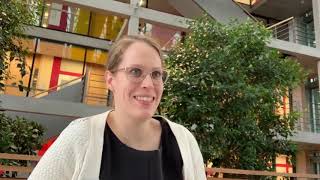Interview: Living history in the borderlands of Germany and Denmark: 1864
In this short video, Caroline Elisabeth Weber (M.A.) provides an account of the rich histories in the border area between Germany and Denmark that still impact people’s perceptions of their region today. For example, the Treaty of Vienna 1864 marked the end of the Second Schleswig War between Austria and Prussia, and Denmark. It was a critical juncture for Denmark; having lost Norway to Sweden in 1814, it now lost a third of its remaining territory. It was also important for the other Nordic countries when Denmark’s enemy number one arguably changed from Sweden to Germany thereafter. Caroline Weber is Scientific Associate in the Department of History at the University of Kiel and the chairperson of the German-Danish Association in Kiel (Deutsch-Dänische Gesellschaft e.V.), so can therefore offer a unique insight.

The borderlands between Germany and Denmark offer numerous stories about the variety and challenges inherent in a border region with a long collective history. 2020 is friendship year between Denmark and Germany, and is also the 100-year anniversary of the reunification of Denmark. In 1920, parts of the territory that were claimed by Prussia in 1864 became Danish after a plebiscite. The two famous years, 1864 and 1920, resonate down the generations particularly for the people living near the border, and the German minority living in Denmark, and the Danish minority living in Germany – there are many different perspectives on history and border areas often exemplify this, Caroline Weber explains.
The interview was recorded in January 2020 after an academic workshop to mark the 100th anniversary of these events in 1920 arranged by the Department of Northern Europe Studies at Humboldt University in Berlin and took place at the Representation of the State of Schleswig-Holstein to the Federal Government. It is in Danish with Danish and English sub-titles.
Further reading:
- Caroline Weber. Der Wiener Frieden von 1864. Wahrnehmungen durch die Zeitgenossen in den Herzogtümern Schleswig und Holstein bis 1871 [The peace of Vienna 1864] (Kieler Werkstücke, Reihe A, 41, Frankfurt a.M. 2015).
- Oliver Auge. 'Der deutsch-dänische Grenzraum' [The German-Danish Borderland]. EGO. Europäische Geschichte online (9.3.2020).
- Steen Bo Frandsen & Jes Fabricius Møller. '1864: Med andre briller' [1864: With other eyes] Weekendavisen (31.10.2014).
- Steen Bo Frandsen. '1864 between nation and region: The need for a new history' Nordic History blog (6.5.2014).
Links:
- Centenary of Denmark’s Reunion with Southern Jutland 2020
- Deutsch-Dänische Gesellschaft e.V. [German-Danish Association, Kiel]
- Representation of the State of Schleswig-Holstein to the Federal Government
- The Peace Treaty of Kiel January 14, 1814
- This film took place on 30 January 2020 at an event organised by the Institute for North European Studies at Humboldt University in Berlin entitled 'Grenz/Raum - Grænse/Region'. Our thanks goes to the organisers.
